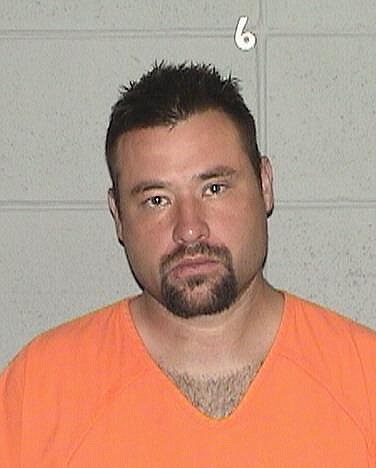Attorney wants evidence suppressed in fatal crash case
The attorney for a Missoula motorist accused of killing his passenger in a drunken wreck over the summer wants prosecutors barred from using incriminating statements made at the scene in his upcoming trial.
Maury Solomon, who represents 37-year-old Bradley Keith Burgess, filed a motion to suppress evidence in Flathead County District Court earlier this month. In it, he argues that responding officers and paramedics attempting to treat Burgess coaxed him to incriminate himself without first reading him his rights.
Authorities arrested Burgess at the scene on South Fork Road after he admitted drinking alcohol prior to the Aug. 29 wreck, according to an affidavit filed in district court by prosecutors in August. He allegedly said he lost control of the vehicle, drove across the road and off the shoulder before rolling down an embankment. The impact ejected his passenger, identified as Stephanie Nicole Casaulong, from the vehicle, which then rolled over her, court documents said.
Authorities at the scene noted the odor of an alcoholic beverage on Burgess and reported that he boasted red, bloodshot eyes and slurred speech, the affidavit said. They also described him as unsteady on his feet, court documents said.
Burgess refused a blood test, but investigators later applied for and received a warrant for the procedure, according to the affidavit.
He has since pleaded not guilty to a felony charge of vehicular homicide while under the influence, though he remains in county jail with bail set at $200,000.
SOLOMON’S VERSION, detailed in his motion to suppress and based partially on an independent investigation, has arriving first responders finding Burgess performing CPR on the dead or dying woman. Authorities pulled Burgess away and “shifted from an effort to render aid, to a full blown traffic homicide investigation.”
Detaining Burgess, they offered him water and medical care, which he turned down. Despite recording his statements on body recording devices, authorities never Mirandized Burgess, Solomon alleged.
He also alleged that officers placed his mobile phone on the patrol car Burgess was leaning against while asking him if there was anyone he wanted to call. When he told them he would need his cell phone — and its contact list — officers pointed to the planted device, according to Solomon.
“He looked back to examine the phone and said it was his,” Solomon wrote. “An officer offered he could call someone for ‘support.’ [Burgess] then phoned a family member and made incriminating statements in front of law enforcement.”
Despite already turning down medical aid, officers brought in medical personnel to meet with him. Along with asking Burgess again if he wanted medical attention they sought his version of what happened, Solomon alleged.
“[Burgess] responded by providing an incriminating statement, again recorded by law enforcement,” he wrote.
Finally, Burgess met with a Highway Patrol trooper, who was aware the case had turned into a homicide investigation, according to Solomon. The trooper began peppering Burgess with questions regarding the wreck, he alleged.
“Again, [Burgess] gave incriminating responses,” Solomon wrote, noting that the trooper then escorted the 37-year-old to his patrol vehicle. “[The trooper] never Mirandized the defendant, yet continued to elicit incriminating statements about the incident from [Burgess] while in the vehicle and en route to processing the arrest.”
SOLOMON ARGUED that the state and federal Constitutions protect the right to remain free from compelled self-incrimination. Montana code pertaining to criminal procedures also requires law enforcement to let an individual know that they have the right to remain silent and warn them that their words can be used in court, among other advisories associated with being Mirandized.
“[Burgess] was in custody on a serious multi-agency criminal investigation,” Solomon wrote in his motion. “By their actions, suggestions and direct questioning, law enforcement elicited incriminating statements without ever providing defendant routine Miranda advisements.”
Moreover, they used underhanded tactics to get Burgess to incriminate himself following the wreck, pointing to the alleged planting of the cell phone and the use of medical personnel to ask about the crash, he wrote.
“The state may argue that a Miranda advisement was given at some point during these custodial interrogations, but the defense has seen no evidence of it throughout discovery,” Solomon wrote.
Deeming those interrogations “unlawful,” Solomon asked that the court suppress evidence exposed during Burgess’ phone call to a relative, his remarks made to medical personnel and anything he said to the Highway Patrol trooper at the scene or in the patrol vehicle.
Appearing before Judge Robert Allison on Nov. 16, Solomon asked for a three-hour hearing on the motion. That hearing is now scheduled in district court for Dec. 2.
If convicted of vehicular homicide while under the influence, Burgess faces up to 30 years in Montana State Prison and fine of $50,000.


